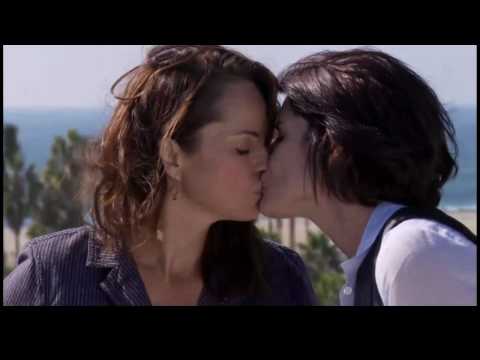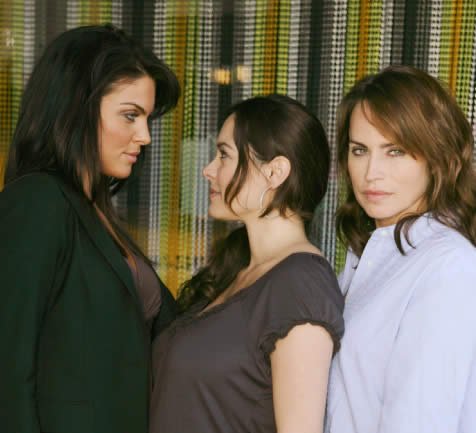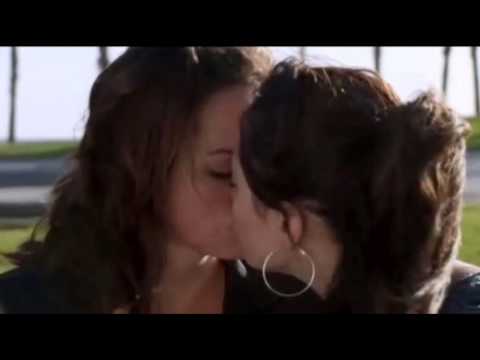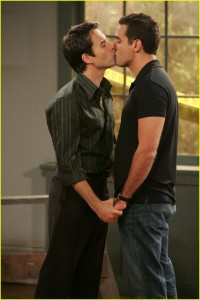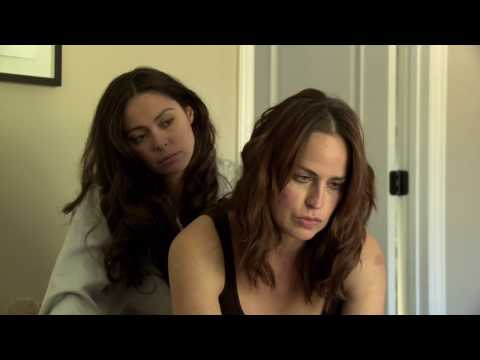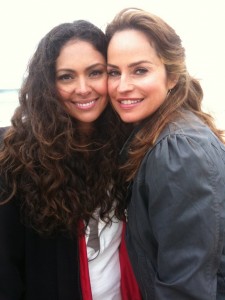For those who do not know, Venice the Series is a webseries which focuses almost exclusively on fictional characters within the gay community in Venice Beach, California (although there are some straight characters as well). To some, this may seem like just another series for entertainment value, but to many viewers, it’s much more. Unlike some other shows which have featured LGBT characters – though not all – it features not only a wide variety of characters, not just stereotypical ones, and portrays them as normal, rather than a separate species.
What I like the most about Venice the Series is that while most of the characters are gay, that does not tend to be the sole focus of the show. Instead, it’s treated as normal. Granted, they are not subtle about it, but I don’t see why they should be. Straight couples are rarely ever subtle in television and/or webseries, so there’s no reason to me why gay and lesbian couples should have to be. Subtlety is not the question though. What I mean is that the main character, Gina Brogno, is a lesbian woman, but she does not struggle with that. She is fine with who she is and her friends – even the straight ones – do not treat her any differently because of it. She is just a character dealing with life who happens to be gay.
The relationships, as well, do not discriminate. They are presented and developed in the same way they would be with a straight couple. Lara and Ani, for example, had a very normal development to their relationship. They met in a coffee shop, started talking, realized they liked each other and began dating. They had a natural progression of getting to know each other. So often on television, gay couples are either shown as doing nothing but have sex, or they never have sex or even have a real kiss – as was the case with Otalia (the inspiration behind the series). Instead, with this series, the characters have the natural progression toward becoming a couple. There is a genuine connection beyond just the sexual component. However, that said, the sexual component is not missing entirely – or even partially. The first scene of the series demonstrates that right off the bat, as it features Gina and Ani kissing.
The difference between this and many other shows, such as Will & Grace – arguably the most well-known and popular show centering around gay characters – is that while Will & Grace discussed topics of being gay and was fairly revolutionary in the way much of the audience viewed gays, it was considered “the straight man’s gay”. While there were intimate moments shown between the straight couples – mostly being Grace’s relationships – there was little intimacy shown for the gay ones. Granted, there were many sexual jokes and references, but few actual moments were shown. Grace was shown kissing many men, whereas Will had very few meaningful kisses – if any. Even beyond that, there tended to be some distance, literal and figurative, though mostly the latter, between the gay characters when they were together. Relationships tended to be hinted at more than they actually appeared on-screen. This wasn’t always necessarily the case. There were a few same-sex kisses, but they tended to be rare.
I would also like to add: all of the characters were rather stereotypical – Jack being the most obvious example. All of the gay men were rather flighty and overly feminine, which isn’t always the case. Similarly, lesbians were generally butch, or in the case of Brittany Spears’ guest-starring role, butch in disguise as feminine. They also semi-normalized male/male relationships while tending to make the females all relatively straight. In one episode, East Side Story, where Will and Grace are getting into real-estate, their competition were lesbians and, well, to say the least, many jokes were made at the expense of the lesbians.
Granted, I would like to acknowledge that despite these few downfalls, Will & Grace was still an important step in promoting acceptance of gay people. As well, it remains a personal favorite of mine.
Venice, however, is the opposite. Now, don’t get me wrong, as I said before, I loved Will & Grace and still do, but in terms of realistic portrayal, I think it definitely falls short of this webseries. I don’t really blame the writers or actors, as I think both were brilliant, but I do blame the network restrictions. Since Venice is independently owned and produced, they can do and show basically whatever they want. There is a lot of intimacy shown and it’s done in a way that is far more tasteful than gratuitous. You can actually see the feelings of the characters – broken hearts, love, lust, etc. – and see the developments of the affairs.
As well, there is a certain realism to the characters which I think is rarely seen when dealing with this subject matter. Most of the girls may be lesbians, but they aren’t attracted to all other women, which I appreciate. They also do more together than just have sex, which, for some reason, seemed to be the conception of lesbians that many people had. Tracy even said she would make Gina work for it; that she wanted romance and wooing instead of just a one night stand. Each character is just a normal girl. She is not defined by her sexuality. They all have distinctive personalities and character traits.
Now that I have explained that there are differences, I will explain why differences like this are important. The main reason is that they allow the audience to related to the characters more, with similarities to themselves, rather than as foreign beings. By having the characters be like regular people and not an entirely segregated sect of society, they are seen as normal, rather than a group to be laughed at or disgusted by. Among the audience of Venice, people are very accepting of those who are gay, lesbian, bisexual, etc. whether they are part of said community or not. One certainly does not have to be LGBT to appreciate the series and all of its merits. There is an understanding which cannot be achieved by laughing at the silly antics of a gay man. The real problems of the characters are relatable to both gay and straight audience members. Shows like this are so important in this day and age as this is such a huge issue.
Similarly, as shows such as Venice promote acceptance within society, they also promote acceptance of oneself. By showing regular people going about regular lives who just happen to be gay, it shows that being a lesbian, bisexual, or any other sexuality, one’s life does not have to drastically change. They don’t have to hide when they see characters who are like them. Television and the internet have an incredible power to influence their audience. Groups which are underrepresented tend to feel that their difference from the norm is something to hide from. When they are able to see characters presented to them who have the same difference from other members of society and are not ashamed of who they are, they are more likely to gain a self-acceptance.
I’m not just spewing out opinion or even researched facts – though I have written papers on similar topics before. I’m also speaking from experience. Coming from a rather conservative area, I was raised to believe in the stereotypes and although my parents are understanding and open-minded, many other members of the community are not. Either way, I denied my own feelings for years. I convinced myself that what I was feeling was something else because I didn’t want to believe it. I became a fan of Crystal Chappell’s when I saw her as Dr. Carly Manning on Days of Our Lives. I had no idea she was involved in any projects like Otalia or Venice until I met some other fans of hers and they convinced me to watch both.
At first I was a bit reluctant to admit that I related so well to the characters – especially Ani – but as I watched the blossoming relationships, especially of Olivia and Natalia (Otalia, Guiding Light), and I finally saw positive portrayals of bisexual and lesbian couples, I realized it wasn’t as wrong as I had believed – then finally I realized it wasn’t wrong at all. Seeing someone like Crystal Chappell, whom I admired so much (and still do), so willing to stand up for gay rights, and having no hesitation toward kissing another woman and portraying such a beautiful romance, showed me that it’s okay to feel how I do and I shouldn’t be ashamed.
It was writing and performances like the ones on Venice that allowed me the courage to come out to people, one at a time. As hard as it was to tell some people, I must say that it was the best decision I’ve ever made. I’m no longer living being ashamed of myself or hiding from others. I feel so much freer and happy. It’s all thanks to Venice and Otalia that I was able to accept myself and allow others the chance to know the real me.
I also know that I’m not alone in this. I’ve made friends with a lot of fellow Venice fans – or Team Venice – and many people have had similar experiences. This webseries and the couple it was inspired by (although the two are entirely separate entities) have given freedom and awareness to many viewers, which seems to me, can only be a good thing. The fact that a show can have such a profound effect on members of its audience makes it more than just a webseries.
